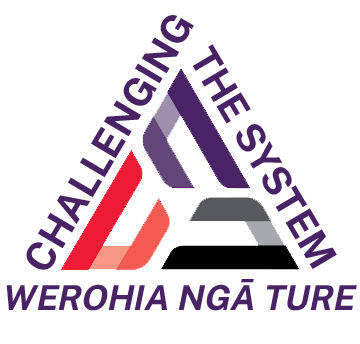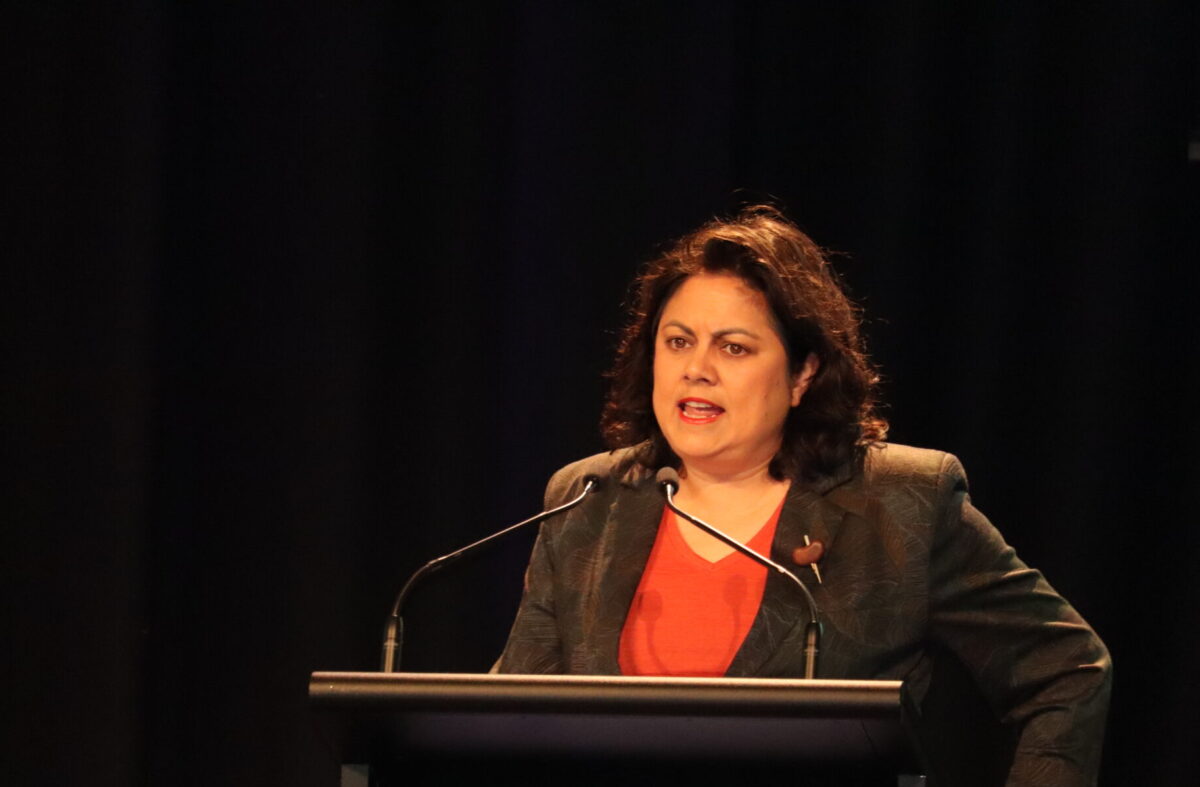Aotearoa’s health system is “in recovery” after years of neglect — but its gains will quickly disappear without sustainable funding post-election, Minister of Health Ayesha Verrall warned NZNO members.
“Unless we do that, all the aspirations we have for the future are lost — but, much more, even our ability to maintain what we have just won is compromised.”
Opening Tōpūtanga Tapuhi o Kaitaiki Aotearoa — NZNO’s AGM, Verrall said post-COVID she aspired to creating a health system which offered “true wellbeing” to the people it cared for.
“I personally want to see people have a much more preventive approach to health care, deliver more care to people in the community near where people live.”
‘We have to rely on immigration now as it would be, I think, unethical to leave the number of gaps we have in the workforce. But we want that to be a short-term solution and start ramping up domestic training.’
The health system had been put under huge pressure by COVID, with 2022 experiencing “the toughest winter in living memory”, Verrall said. But that had come after years of underfunding by the National-led Government, “which made our systems lack the resilience needed to deal with surges of COVID and all the disruption that brought not only to workload but how we work,” she said.
Verrall — an infectious disease physician — offered her “diagnosis”.
In the five years before a Labour-led Government came to power in 2017, spending in the health system grew by just 18 per cent — less than inflation, which made it effectively a reduction, Verrall said. That impacted on infrastructure — such as buildings — and staff.
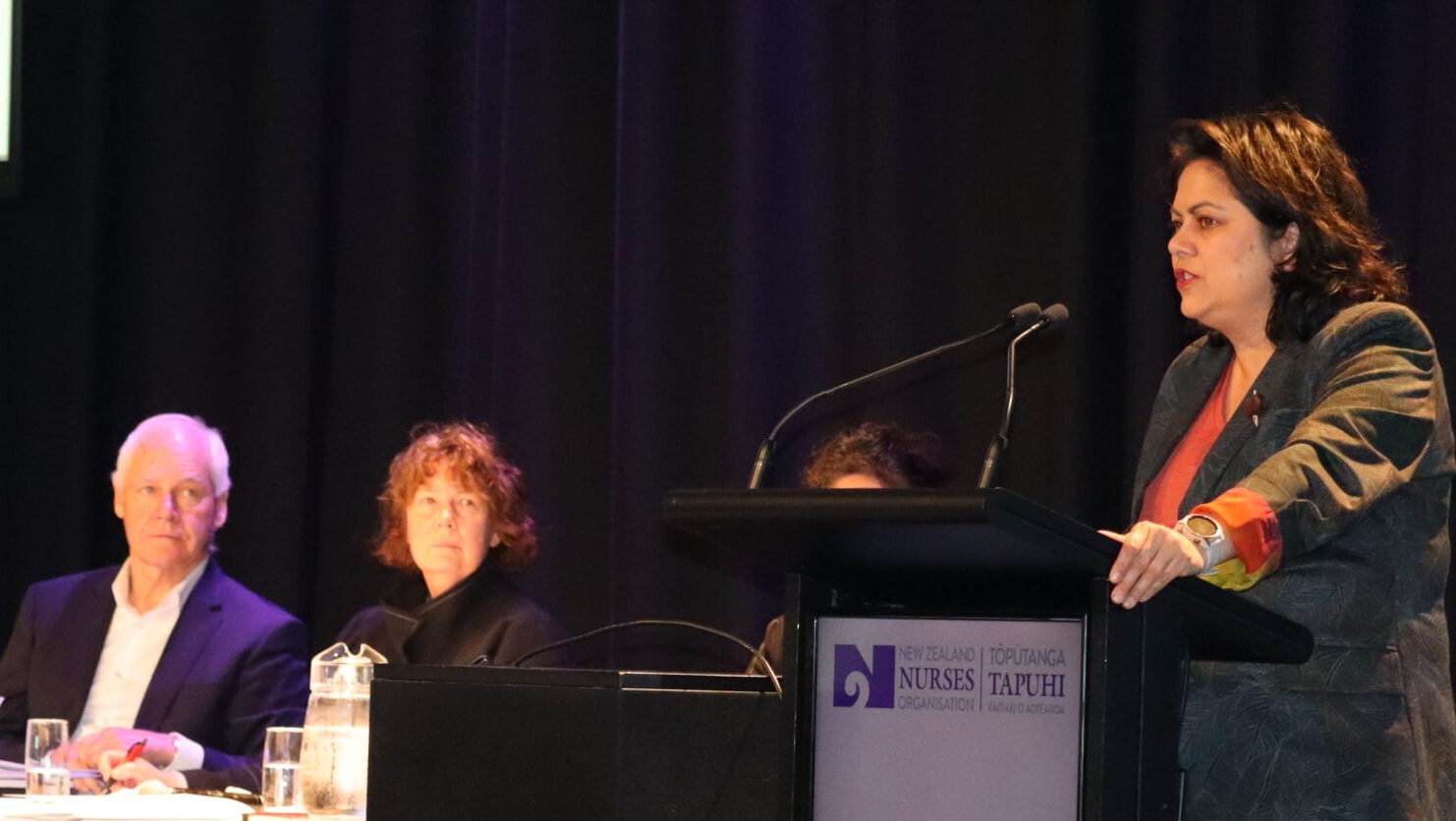
While the Te Whatu Ora nursing workforce had grown by almost 5000 since 2017, there was clearly more “catching up” to do.
Then COVID arrived, to which New Zealand’s response was “world-leading”. An estimated 100,000 health workers died globally during the pandemic, according to the World Health Organization — “we weren’t in that situation”.
‘My diagnosis is that our health system is recovering from COVID and the benefit of our investment is starting to show.’
Part of its success, was the health workforce mobilising on a huge scale, to vaccinate and test. But this did “blow out” waitlists and put “huge” pressure on the workforce — aggravated by immigration lockdown which hindered internationally-qualified nurses (IQNs) getting in.
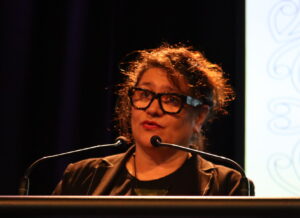
“Our health workforce had become dependent on immigration as a way of sustaining itself for far too long.”
When Verrall took over from Andrew Little eight months ago, she focused on the “three Ws — workforce, winter and waitlists — and key among them is workforce”.
She said there had been progress. Hospital “productivity” had increased by six per cent and wait lists were coming down. With a goal of having nobody waiting for surgery (except for orthopaedic) for more than a year, there needed to be 50,000 operations by the end of the year. “We are down to 9300 — so while it’s not always visible everywhere in the health system, we are making tremendous progress reversing some of the pressures COVID put on us,” Verrall said.
“My diagnosis is that our health system is recovering from COVID and the benefit of our investment is starting to show. I understand that does not mean that anything is easy and there is still tremendous pressure on you all.”
‘There is so much capacity for innovation and leadership within the nursing profession that can help be part of that change.’
There had been “record” numbers of IQNs coming in to plug gaps — but the Government was also committed to domestic training. The 700 additional Te Whatu Ora clinical placements for students would grow the nursing workforce by about 10 per cent, she said.
“We have to rely on immigration now as it would be, I think, unethical to leave the number of gaps we have in the workforce. But we want that to be a short-term solution and start ramping up domestic training,” she said.
“This, combined with immigration, is capable of closing the gaps in the medium term and securing a proper long-term future for our nursing workforce.”
Safe staffing, too, was an “absolute priority”, with dedicated funding now for care capacity demand management (CCDM) to be implemented.
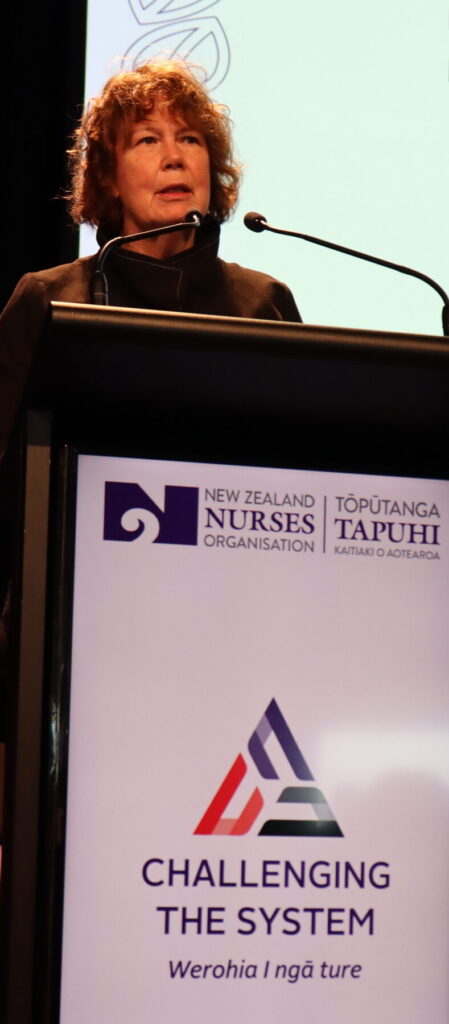
Verrall said she had “greater aspirations for the health system than just managing demand and the day-to-day” and wanted to keep people well and out of hospital. Nurses had a “huge” role to play in this: “There is so much capacity for innovation and leadership within the nursing profession that can help be part of that change.”
Verrall applauded NZNO for its call to all political parties to commit to sustainable health system funding — “at the very least above inflation, which has been our track record”.
“It’s incredibly important that be sustained.”
NZNO president Anne Daniels said unsafe staffing levels were “hurting us all”.
“We need to be safe when we go to work — we need to be safe so we can keep our patients safe.”
‘We have to step up and earn that respect and we’re not going away anytime soon.’
“We have a tool that could work, CCDM, but it should not be up to us to enforce it.”
Kaiwhakahaere Kerri Nuku said all health workers must stand united to bring about the key five Maranga Mai! fixes: actualising te Tiriti, pay, training, Māori and Pasifika and safe staffing.
NZNO chief executive Paul Goulter urged members to “vote health” this election.
If a change of Government brought “negative forces”, holding fast to the focus and direction set by NZNO’s strategy Maranga Mai! would be crucial.
“Lack of respect — for nurses, for their profession and for other health-care workers– is at the heart of the issue and we have to turn that around.
“We have to step up and earn that respect and we’re not going away anytime soon.”



